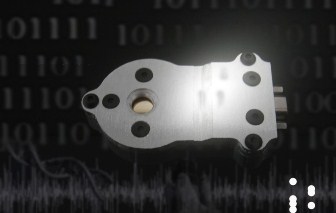
Great potential for new stem cell research for diagnostics and therapeutics.
Their goal was a biosensor for better identifying and distinguishing stem cells from other cell types. This biosensor could pave the way for medical research into new treatments for cancer, spinal-cord injuries and Parkinson's disease.
The research was funded by the European network of transnational research and technological development for SMEs in the biotechnology field, a funding initiative known as EuroTransBio, under the EU's 7th Framework Programme, which preceded the current EU Research and Innovation programme H2020 (2014-2020).
"This was a great opportunity for our small company to work on an important international project," says Gianluca Ferrini, CEO of Naples-based Novaetech. The company, a spin-off of Italy's National Institute for Astrophysics, sought a medical use for its sensor innovation.
For help, the three-employee firm turned to the Enterprise Europe Network, based in Portici, Naples, at the Italian National Agency for New Technologies, Energy and Sustainable Economic Development (ENEA).
With around 600 offices in more than 50 countries, the Network is ideally placed to help entrepreneurs identify EU funding programmes and prepare applications. "Novaetech was very focused about branching out in a new direction," said Fulvio Miraglia, a Network expert in ENEA's technology transfer unit.
After a technology audit, he shared Novaetech's request with the Network. Within 10 days, a response came from tgcBIOMICS, through the Network's branch in IMG Innovations-Management in Kaiserslautern, Germany.
"Each side brings a valuable ingredient to the table," says Simon Koerpert, Business Development Manager of tgcBIOMICS, which offers a range of biotechnology services and products. "Thanks to the Enterprise Europe Network, we formed a consortium for ground-breaking stem-cell research at European level."
The German firm provided the specific antibodies for stem cells and ran its work package. Its Italian partner analysed and used these antibodies. Their monoclonal antibody has great potential for new stem cell research for diagnostics and therapeutics, such as the treatment of Alzheimer's or individualised cancer therapy.
"Although both companies come from different technical worlds, they remain in loose contact," says Dr Julia Dohnt-Glander, Network life sciences and technology transfer expert at IMG. However, their project results and the new technology are being exploited commercially. tgcBIOMICS markets the resulting monoclonal antibody as a powerful tool for applications such as flow cytometry and cell sorting.
On the Italian side, the funding process - managed by the Italian Ministry for Economic Development - has come up against bureaucratic hurdles. Yet according to Paola Faillace, Network consultant at ENEA's technology transfer unit, "Novaetech hopes to launch industrial production of the system it has designed, once the ministry has scientifically evaluated the project results and given the firm the necessary financial support."